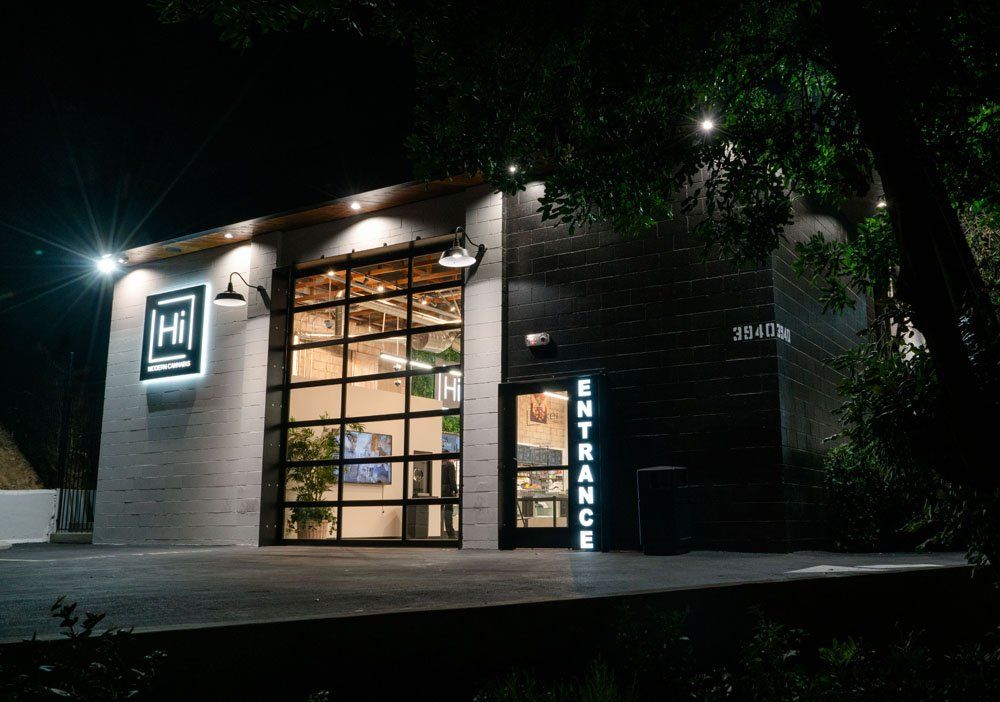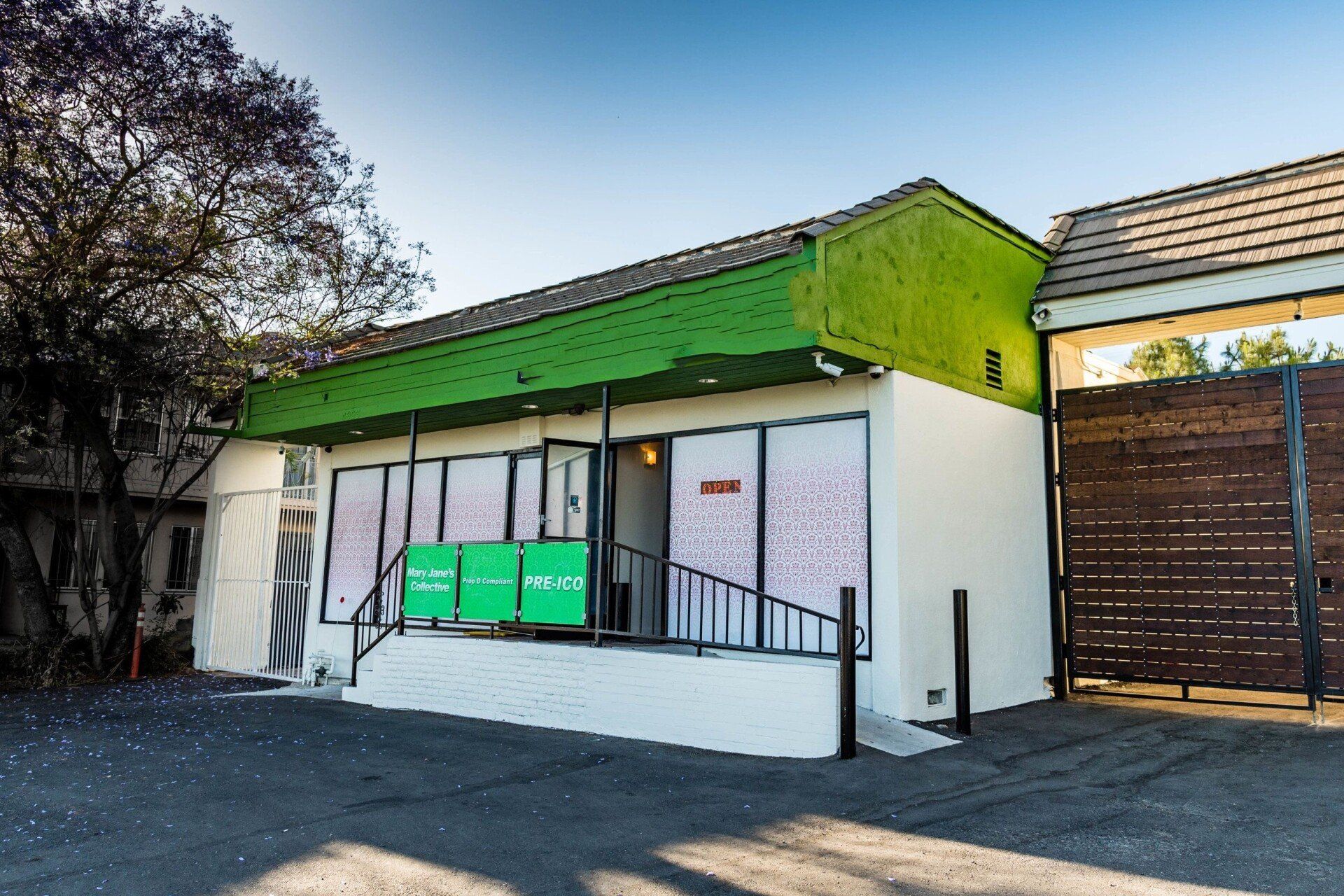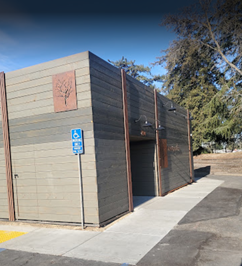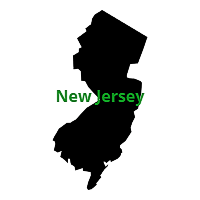OPPORTUNITIES BY STATE
State Governors and Lawmakers are making marijuana legalization a priority to generate needed tax revenue amid the coronavirus pandemic, create jobs, boost the economy and promote racial justice
ADULT-USE CANNABIS SALES
Legal sales of cannabis in the U.S. grew 40% in 2021 to $25B, according to research from BofA Securities. Research firm BDSA estimates the U.S. will see $30 billion in legal sales for 2022, with Brightsfield Group expecting the market to hit $50 billion by 2026.
RECENTLY LEGALIZED: Upcoming Adult-Use Licensure
It’s nearly impossible to overstate the size and stakes of the growth happening now, especially in populous states just opening their legal markets. For example, after legalizing recreational cannabis in 2020, Illinois doubled its total sales in 2021. The state logged nine consecutive months of $100 million-plus sales, for an anticipated $1.87 billion bottom line, according to New Frontier.
-
New Jersey
Approved on the November ballot, Public Question No. 1 legalized cannabis for adults 21 and older. The program will be regulated by the Cannabis Regulatory Commission (CRC), the same regulatory body that now will also oversee New Jersey's medical cannabis businesses. The recreational cannabis products would be subject to the state sales tax (currently 6.625%) and any municipal tax (up to 2%).
By initial estimates, New Jersey's recreational cannabis market could be hefty. Marijuana Business Daily pegs annual sales, with a state population of nearly 9 million people, between $850 million and $950 million by 2024 -- but a successful initiative carries greater significance outside of New Jersey's borders. The passage of recreational cannabis in New Jersey has accelerated legislative efforts in neighboring New York, Connecticut and Pennsylvania.
Cultivation, Wholesale and Distribution license applications opened on December 15, 2021. Dispensary applications will open on March 15, 2022.
Click Here for Investor info
-
Illinois
Adult-Use Sales began on January 1, 2020 with 37 dispensaries. Currently, there are 110 adult-use dispensaries operating in the state as an extension of the 55 medical operators previously licensed.
Illinois is a limited-license state that allows for a total of 500 recreational licenses throughout the state to be released in incremental waves annually. The first 75 were supposed to be awarded in May 2020 but due to pending litigation licenses have not beeen issued. The Department also chose to issue 110 additional licenses through two additional lotteries for a total of 185 pending licenses yet to be issued.
As of early 2022, the issuance of Recreational licenses has continued to be delayed.
-
Connecticut
The Connecticut Senate on June 17, 2021 gave final legislative approval to a bill that allows for the cultivation and sale of marijuana in the state.
The measure allows adults 21 or older to purchase and possess up to 1.5 ounces of marijuana (or up to five ounces locked away at home or in a vehicle’s glove box or trunk) since July 1, 2021.
Connecticut is a limited license state and will issue 12 retailer licenses. They will hold two lotteries for each license type: a social equity lottery and a general lottery.
-
New York
New York is the 17th State to legalize the recreational use of Marijuana. The Marihuana Regulation & Taxation Act (MRTA) was signed into law on March 31, 2021 legalizing adult-use cannabis (also known as marijuana, or recreational marijuana) in New York State. The legislation created a new Office of Cannabis Management (OCM) governed by a Cannabis Control Board to comprehensively regulate adult-use, medical, and hemp cannabis. The OCM will issue licenses and develop regulations outlining how and when business can participate in the new industry.
-
Michigan
Recreational marijuana dispensaries in Michigan opened on December 1, 2019 .
At the start, only medical dispensaries could apply for a recreational retail license but the Michigan Regulatory Agency announced Oct. 6, 2020 that it will allow cannabis businesses to apply for standalone adult-use licenses starting March 1, 2021.
Click Here for Investor Info
-
Montana
January 1, 2022 in Montana brings the legalization of recreational marijuana to many counties.
The statutory measure creating a system of legal cannabis access for adult-use was approved by voters allowing possession up to an ounce of cannabis, and people can cultivate up to four plants and four seedlings at home.
Those in what are called green counties — where a majority of residents voted in favor, will be allowed to have recreational sales.
But residents of red counties — where voters opted out of legal sales — will not have recreational sales, but still have the ability to make the switch as long as they put it up to a vote.
There is a 20 percent sales tax on recreational marijuana, while the tax on medical cannabis products will be reduced from two to one percent. Revenue from legal sales will go toward land, water and wildlife conservation programs, veteran services, substance misuse treatment, health care, local governments that allow cannabis businesses and the state general fund.
A fiscal note from the Governor’s Office of Budget and Program Planning estimates that legal cannabis retail taxes will generate $38.5 million a year by Fiscal Year 2025.
-
Arizona
Proposition 207 allows adults 21 years and older to possess, consume or transfer up to 1 ounce of cannabis and creates a regulatory system for the products' cultivation and sale. Some key elements with the new measure include the addition of social equity provisions and criminal justice reforms such as record expungement.
The Arizona Department of Health Services may not issue more than one license for every ten registered pharmacies in the state of Arizona, which equates to about 130 licenses. During the first application period, which ends on March 9, 2021, the department only accepts applications from two categories of applicants. The first category is nonprofit medical marijuana dispensaries that are registered and in good standing. As there are 130 medical marijuana dispensaries, most, if not all, of the recreational licenses will likely be tied to those establishments.
The second category of early applicants is entities seeking to operate a dispensary in a county with two or fewer existing medical marijuana dispensaries. These licenses exist outside of the one license per ten pharmacy cap placed on the first category. While this category provides an opportunity for new players, there are only 12 licenses available.
According to estimates from industry publication Marijuana Business Daily, recreational sales in Arizona could total $700 million to $760 million by 2024.
-
Vermont
In Vermont, adult-use home grow and possession were legalized in 2018, but the legislation did not include a commercial sales and taxation program. Key provisions of S. 54 include the creation of a new independent board to regulate medical and adult-use cannabis; prioritization of business licensing for small-scale cultivators, minority-owned businesses, and woman-owned businesses; and independent lab testing of all cannabis sold to patients and adult consumers.
The Vermont recreational marijuana market will build upon one of the smallest medical cannabis markets in the U.S. – only five vertically integrated companies currently are operating in the state.
Adult-use sales in Vermont could reach roughly $230 million in 2023, according to an economic impact report issued in August 2020 by Denver-based cannabis law firm Vicente Sederberg.
According to the report, recreational sales are expected to increase to just below $250 million in 2024 and about $255 million in 2025.
Business license types that will become available in the coming year will include stand-alone permits for new market entrants – for growers, retailers, manufacturers, wholesalers, and testing labs – as well as vertical integration.
Newcomers to the Vermont industry will be allowed only one license per category and only one location – meaning all operations will have to be housed in a single building.
Legal sales will begin in 2022.
-
Virginia
As of March 2021, Virginia is the 16th U.S. state to pass an adult-use marijuana legalization law, though sales would not start until 2024. Only two other states — Illinois and Vermont — have passed legislation to legalize, tax and regulate recreational marijuana through the legislature.
As of July 1, 2020, weed is decriminalized in Virginia. The new law stipulates that the maximum penalty for possessing up to 1 ounce of marijuana is a $25 fine, with no arrest or criminal record imposed.
-
New Mexico
New Mexico Gov. Michelle Lujan Grisham signed legislation April 12, 2021 legalizing recreational marijuana use within months and kicking off sales next year, making it the seventh state since November to put an end to pot prohibition.
-
Washington, DC
The district has a program that defies easy description. Possession is allowed but selling is not. As a result, residents got creative to work around the rules and rely on creative barter, like selling $100 t-shirts that include a free gift of cannabis.
the District’s Alcoholic Beverage Regulatory Agency (ABRA) – has taken steps to boost medical marijuana patient counts and make it easier for companies to operate. The ABRA also would likely play a key part in rolling out a new recreational program.
Washington is a small market, though it may have statehood going for it soon. The surrounding states of Virginia, Maryland, and Delaware all have programs – and Virginia has just added adult-use. If the D.C. program is not expanded, District residents will cross the border and/or use illicit suppliers.
-
South Dakota
South Dakota’s Constitutional Amendment A appeared on the 2020 ballot, passing with roughly 54% of the vote. The measure allows adults over 21 years old to possess and distribute up to 1 ounce of cannabis. A simultaneous measure to legalize medical marijuana was approved by nearly 70% of voters, according to the Sioux Falls-based Argus Leader. But in late November 2021, the state Supreme Court nullified the voter-passed amendment that would have allowed for recreational marijuana use, as reported by The Associated Press. The decision followed a lawsuit backed by Republican Gov. Kristi Noem.
Usually states have legal medical cannabis programs in place before adopting recreational cannabis laws. South Dakota enacted medical and recreational programs in one fell swoop.
EXISTING ADULT-USE MARKETS: Acquisition Opportunities
- California
The cannabis market in California has continued to thrive amid the COVID-19 pandemic, and legal sales are on track to surpass $6 billion in 2025, accounting for a sixth of all legal cannabis sales in the United States, a leading analyst said.
The state market — the largest legal market in the world — has benefited from a bump in demand during the pandemic as customers stock up on products similar to alcohol and tobacco, said Jessica Lukas, vice president of consumer insights for BDS Analytics, a cannabis research firm based in Boulder, Colorado. The firm found that legal spending for weed last year was $3.1 billion in the state and $8.7 billion in the illegal market.
California this year also benefited from a good regulated market, Lukas said. It did not encounter distribution problems seen in other states such as Nevada, which had to shift initially to a delivery-only model amid the pandemic, or supply issues that plagued states such as Illinois, which had only allowed recreational use starting in January, Lukas said. Recreational use of marijuana has been allowed in California since Jan. 1, 2018.
- Michigan
Since Michigan’s recreational sales commenced in December 2019, both medical and adult-use cannabis sales have experienced a huge increase in demand. Weekly medical sales have almost doubled and weekly recreational sales have soared over 800%. For the period of June 8 – 14, adult-use sales totalled $10.02 million surpassing medical sales for the first time on a weekly basis, with total medical sales coming in at $9.97 million. These figures will likely continue to climb as Michigan’s marijuana industry matures with experts projecting the overall market to grow to more than $1.5 billion annually.
The legal cannabis (both medical and recreational) market in Michigan has already reached $20 million in weekly sales. As mentioned, weekly recreational sales outweighed medical sales for the first time, despite medical dispensaries outnumbering adult-use dispensaries by nearly 3 to 1 in the state.
The rise in recreational sales compared to medical sales makes sense, as many consumers with questionable or even legitimate ailments no longer need to go through the trouble of obtaining and updating a medical cannabis card. In fact, since adult-use sales began, the medical cannabis patient count has dropped by 7% in the state.
The adult-use marijuana market in Michigan has plenty of room to grow with 1,400 local governments still outlawing recreational sales. As the tax dollars continue to flow in and residents tire of driving long distances for legal pot, expect to see these regulations eased.
All in all, since December 2019, Michigan has generated total adult-use cannabis sales of $138 million. During that same period, medical sales totalled $473 million and the state of Michigan collected $22.9 million in sales and excise taxes.
STATES TO WATCH: Next Up?
- Pennsylvania
Pennsylvania, the fifth-most-populated state in the country, also is increasingly viewed as a market poised to legalize recreational marijuana. That could occur within the next year via the state’s Legislature, according to industry observers, as lawmakers seek out revenue sources to replenish state coffers depleted by the coronavirus pandemic.
Gov. Tom Wolf has been pushing hard in recent weeks to legalize recreational marijuana, but he is getting resistance from top lawmakers. Wolf also likely sees the implications of Pennsylvania lagging behind New Jersey.
- Maryland
In 2019, a task force of the General Assembly, the Marijuana Legalization Workgroup, began to consider ways to possibly legalize the adult use of recreational marijuana in Maryland. With the state’s medical cannabis industry finally up and running and increased acceptance of recreational use — 57 percent support in a Goucher College poll at the end of 2019 — plus the need to raise money for education, legal pot has gotten a closer look from more lawmakers. Del. David Moon, a work group member and legalization supporter, said the General Assembly now could be on track to seriously consider legalization in 2021.
- Rhode Island
In July, Rhode Island Gov. Gina Raimondo said she would renew a push for adult-use legalization through a state-run program.
Sen. Michael McCaffrey (D), who has been reelected to serve as Senate majority leader, called on the state to legalize marijuana earlier this month. “The time has come to legalize adult cannabis use,” he said. “We have studied this issue extensively, and we can incorporate the practices we’ve learned from other states.”
Gov. Raimondo is waiting to be confirmed to Biden's cabinet and if she is the Lt. Gov. Daniel McKee (D), will become Governor. He said last month that “it’s time that [legalization] happens” and that he’s “more leaning towards an entrepreneurial strategy as opposed to Raimondo's state-run program.
The legalization victories on Election Day, particularly in New Jersey, appear to have galvanized these regional conversations about pursuing the reform.
Advocates say it’s time for the Ocean State to get on board, especially since a growing number of other states are enacting legalization.
- New Hampshire
Marijuana advocates are continuing a push to legalize the drug for recreational use in New Hampshire, but the effort faces an unlikely path in the Republican-controlled Legislature.
A bipartisan bill filed in the state House of Representatives this month would, if approved, legalize recreational cannabis for adults over 21 and set up a system of regulation and taxation for the drug that would allow retail sales. It’s similar to proposals filed in previous legislative sessions, all of which have failed to win approval.
“The battle continues,” said Rep. Rebecca McWilliams, D-Concord, a primary sponsor of the bill. “We keep refining it and negotiating and trying to come up with something that could potentially get to the two-thirds vote needed to override the governor’s veto.”
- Wisconsin
The governor of Wisconsin released a budget plan that calls for legalizing both medical and recreational marijuana in the state.
Despite vocal resistance from leaders in the Republican-controlled legislature, Gov. Tony Evers (D) moved forward with attaching the reform to his proposal. It would allow adults 21 and older, or qualifying patients, to purchase, possess and cultivate cannabis for personal use.
“The Governor believes it is time to join other states, including two of our neighbors, who have legalized recreational marijuana,” an explanatory document from his office says.
- Minnesota
A bill to legalize marijuana in Minnesota will receive its first hearing in a House committee the week of Feb 22, 2021, and legislative leaders are encouraging the public to participate as they solicit testimony on the proposal.
The announcement comes about a week after the cannabis reform legislation was filed by House Majority Leader Ryan Winkler (D), Speaker Melissa Hortman (D) and other lawmakers. It would allow adults 21 and older to purchase and possess up to 1.5 ounces of cannabis and cultivate up to eight plants, four of which could be mature.
- Florida
A Central Florida lawmaker has introduced legislation aimed at legalizing recreational marijuana in Florida.
Orlando Rep. Carlos Guillermo Smith and Pinellas County Sen. Jeff Brandes this week introduced HB 343 and SB 710 which would legalize recreational marijuana in Florida.
The bills would “establish a robust and free-market regulatory approach to the governance of cultivation, processing, and retail sales of both medical and adult-use marijuana.”
The bill would allow adults to purchase 2.5 ounces of cannabis or a product with up to 2 grams of THC.
“The need to end Florida’s prohibition of responsible adult use of cannabis is long overdue. This bill creates a sensible bipartisan framework for legalization that can earn the support needed to pass the Florida legislature. It doesn’t include everything I’d like to see, but it’s the fresh start Floridians deserve to finally move past the draconian cannabis prohibition era,” Guillermo Smith said.





